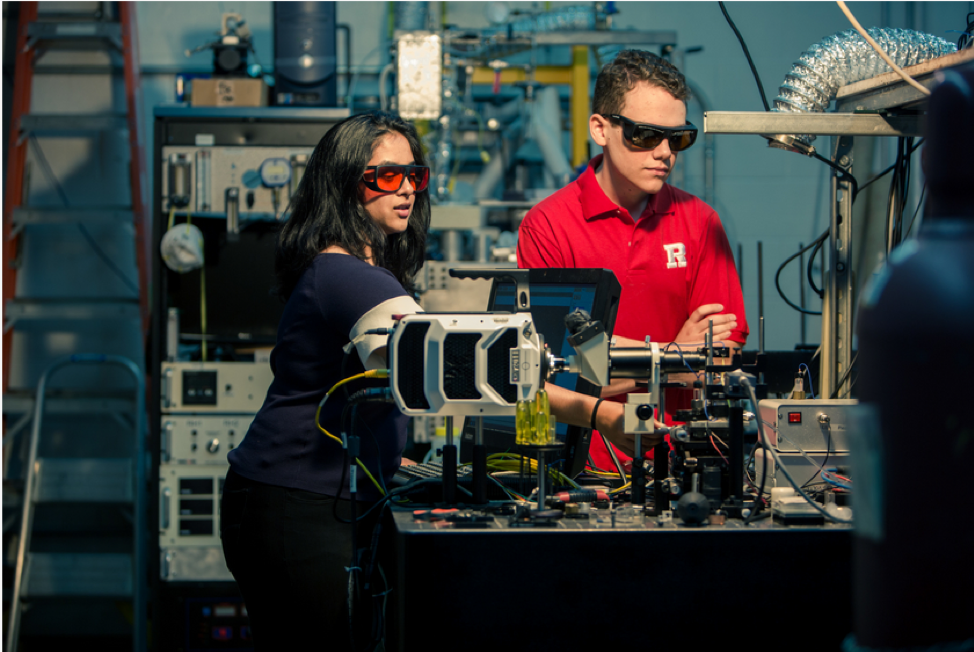
Presented by Rutgers University School of Engineering
It’s easy to understand why many students are drawn to engineering. After all, it’s intellectually challenging, it tackles pressing problems, and it can certainly be quite lucrative. To gain a little more insight into what studying engineering entails, we turned to a top program—Rutgers University.
How would you advise students to prepare for a STEM education?
Students considering an engineering major should pursue courses that include mathematics—particularly calculus and physics. These academic areas serve as the basis for an engineering curriculum. Students might also get involved in extracurricular activities related to engineering, such as robotics, coding, or sustainability.
What makes for a successful STEM student?
Students should have an aptitude for science and math as well as a desire to improve upon what has come before. Mental flexibility is also an asset, since problem-solving is a main component of engineering, one that requires a creative and open mind. Students should likewise be eager to embrace new opportunities and be eager to collaborate. Because engineering is so connected to innovation and improving society, engineers must be lifelong learners who hold themselves to the highest ethical standards.
What features and offerings should prospective students look for in a STEM program?
Good STEM programs provide a solid academic foundation while conducting cutting-edge and innovative research. For example, Rutgers’ curriculum is both robust and relevant, preparing students for the workforce by sharpening their ability to solve problems, communicate effectively, and collaborate across disciplines and divisions.
How do you help students choose an engineering specialty/focus?
At Rutgers, we let students “Explore 10” majors before deciding on the best fit for them. Students don’t have to declare a major coming into our program. Instead, freshmen take Introduction to Engineering, a class that exposes them to each major. There’s also a “Majors Night” fair where students meet faculty and upperclassmen within each discipline. They can ask questions, learn about what makes every program unique, and discuss the research and career opportunities offered by each major.
Finally, how does Rutgers help engineering students prepare for their future?
Rutgers students are privy to some amazing opportunities through programs like the Aresty Research Center, which supports undergraduate research and fosters mentorships between faculty and students. Additionally, undergrads gain valuable experience through engineering-focused extracurricular organizations. These clubs focus on everything from solar vehicles and Formula race cars to water resource development, bridge building in third-world countries and affinity groups like the Society of Women Engineers.
Students also frequently take advantage of the university’s great location. Indeed, they easily land internships and job opportunities with leading companies—from pharmaceuticals and consumer goods to finance, banking and tech giants—all of which are located near campus or a quick train ride away.
Did this Q&A get you excited about the possibility of pursuing a bachelor’s in engineering? If so, click here to learn even more about this fascinating discipline.
Explore Colleges For You
Connect with our featured colleges to find schools that both match your interests and are looking for students like you.
Get Started on Athletic Scholarships & Recruiting!
Join athletes who were discovered, recruited & often received scholarships after connecting with NCSA's 42,000 strong network of coaches.
Best 388 Colleges
154,000 students rate everything from their professors to their campus social scene.



